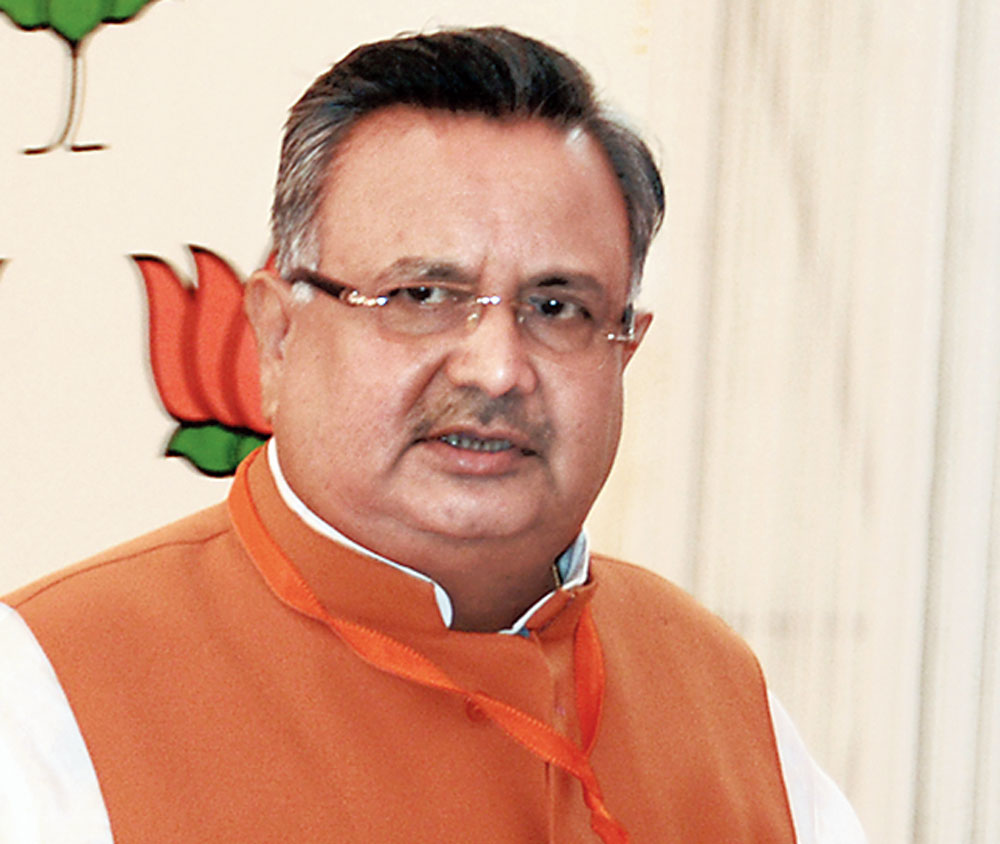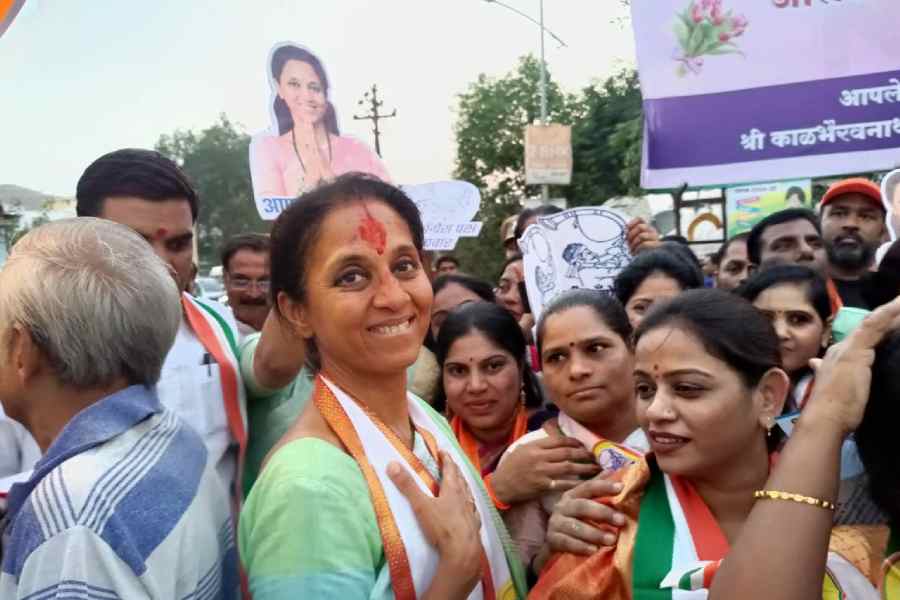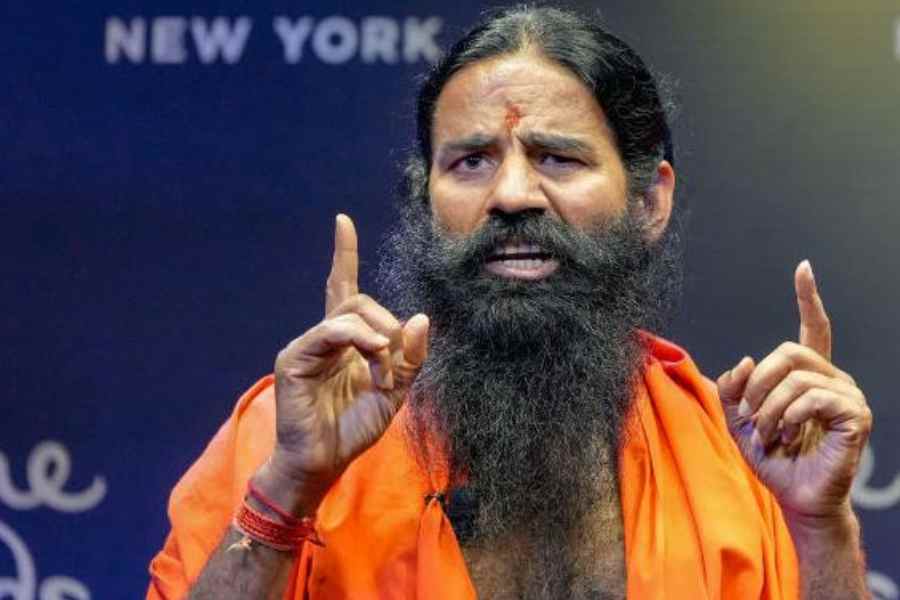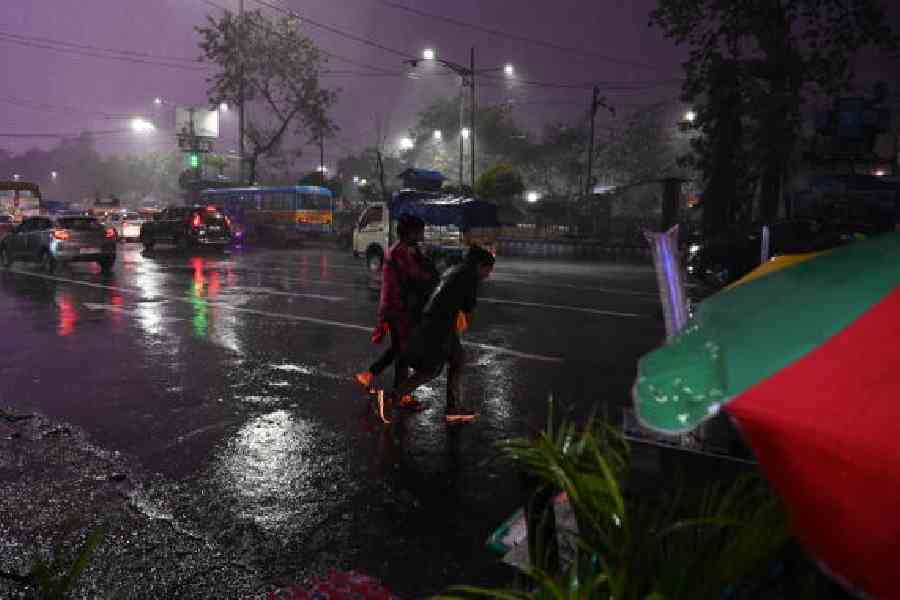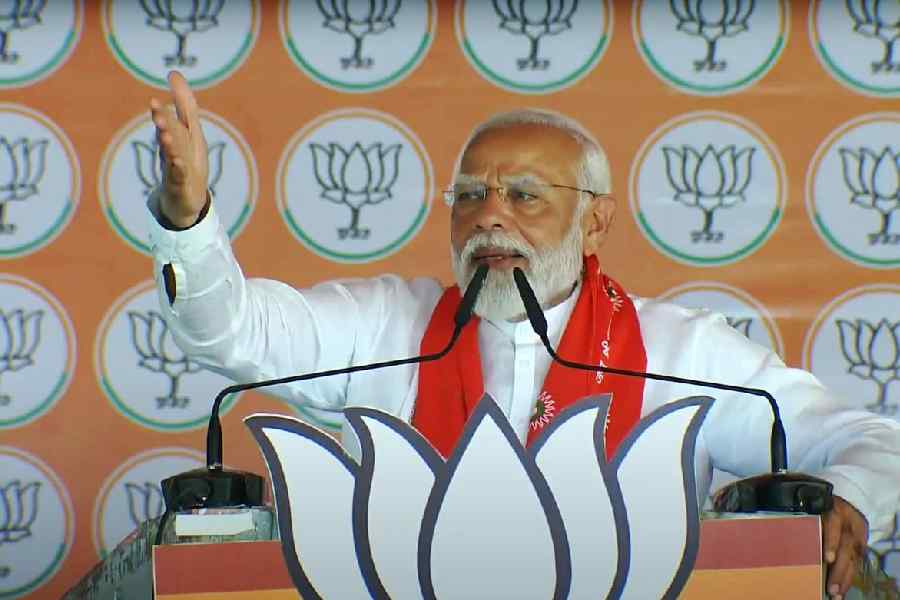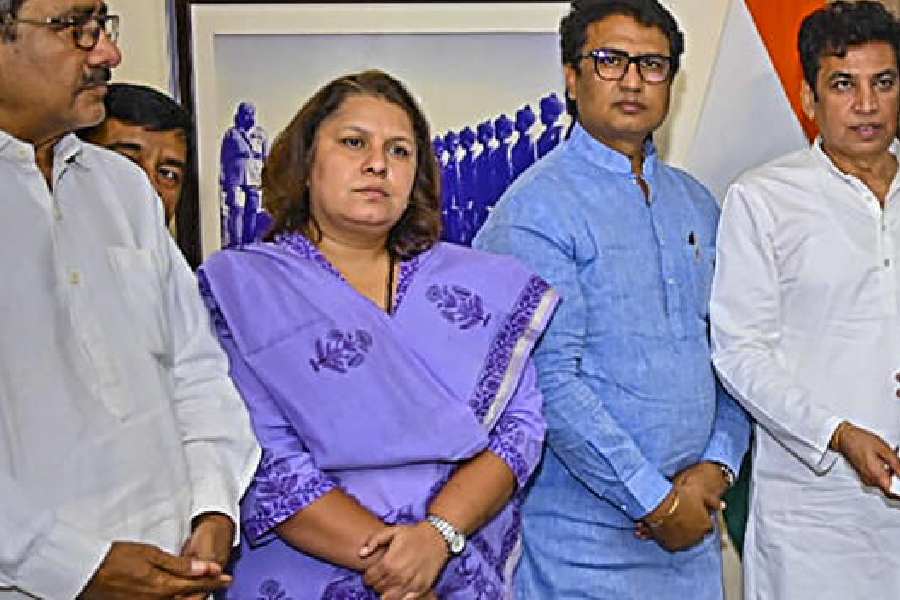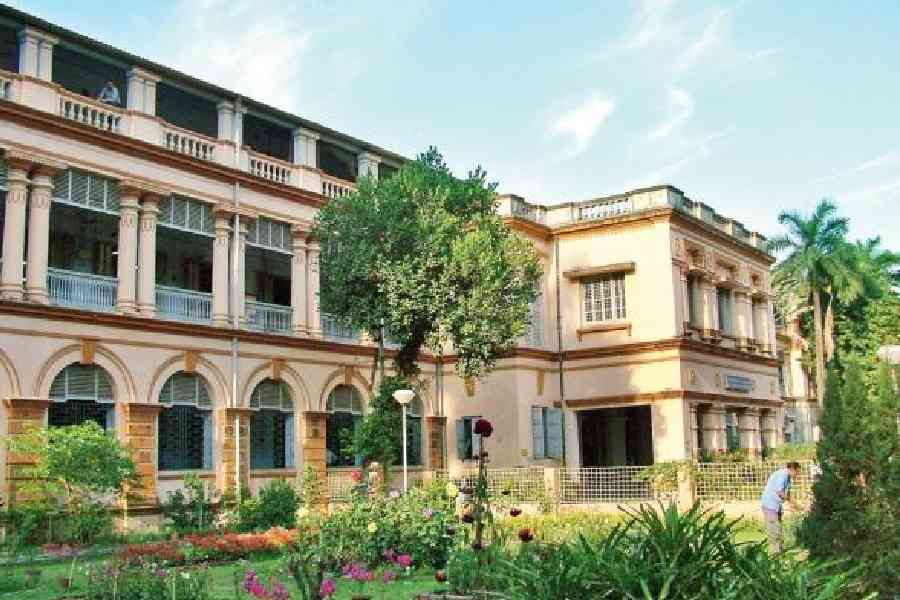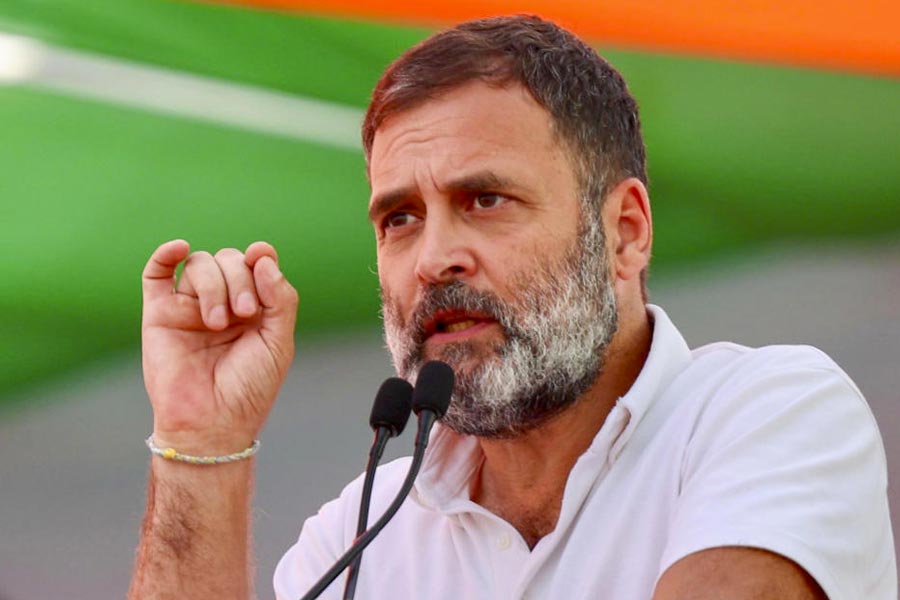Three-time Chhattisgarh chief minister Raman Singh has said the November state polls might have some impact on the Lok Sabha elections next year but it should not be seen as a referendum on the Narendra Modi government at the Centre.
Singh, who has ruled Chhattisgarh for 15 years, said he was confident of winning and dismissed any impact of Congress president Rahul Gandhi’s promise of farm loan waivers in his state on the Assembly elections, saying the farmers had already been given zero-interest loans.
The 66-year-old BJP veteran, who had been an ayurvedic doctor before taking the plunge into politics in the 1980s, told PTI in an interview that there was a “pro-incumbency” wave in the state because of the work his government had done in the agriculture sector and the effective functioning of the public distribution system.
Opposition leaders have been talking about a strong anti-incumbency wave against Singh, who has been chief minister for three consecutive terms.
Many political pundits are seeing the upcoming Assembly polls in five states — Chhattisgarh, Madhya Pradesh, Rajasthan, Telangana and Mizoram — as the semi-finals before the 2019 Lok Sabha elections.
Among the five states, Chhattisgarh will be the first to go to polls in a multi-phase voting. Polling will take place for 18 seats in the first phase on November 12, including for Singh’s own Rajnandgaon constituency, while the remaining 72 seats will vote in the second phase on November 20.
The counting for all 90 seats will take place on December 11, along with those of Madhya Pradesh, Telangana, Rajasthan and Mizoram.
In Chhattisgarh, Madhya Pradesh and Rajasthan, the ruling BJP is pitted directly against the Congress, even as the presence of the Mayawati-led Bahujan Samaj Party’s alliance with former Chhattisgarh chief minister Ajit Jogi’s outfit has made the contest more interesting in that state.
Exuding confidence that the BJP would win, Singh said the state polls might have a “slight impact” on the Lok Sabha elections. However, the state polls should not be seen as a referendum on the Modi government, the three-time chief minister said.
The BJP had won big in Chhattisgarh, Madhya Pradesh and Rajasthan in the 2014 Lok Sabha elections.
The Congress had ruled Chhattisgarh for the first five years of its formation after the state was carved out of Madhya Pradesh.
With Maoist violence back in the limelight, Opposition leaders in their campaign rallies have been accusing the Singh government of failing on the security front.
The chief minister said it would be his priority to ensure peace in the Maoist-affected Bastar region if voted to power again. The entire Maoist-affected region will vote in the first phase.
Singh said Jogi’s presence had made the fight three-cornered, but it did not look as difficult as it was last time.
“I would say the last Assembly election was the toughest one, when Congress leaders were killed in a Maoist attack in the Darbha valley,” he said, adding that his government was questioned at that time over insurgency in Bastar.
On the Salwa Judum, Singh said the movement took shape because of people’s anger at Maoists, which is still there. He, however, added that such movements could not last long. In 2011, the Supreme Court ordered disbanding of the anti-Maoist force after calling it illegal and unconstitutional.
In the 2013 Assembly elections, the BJP won 49 seats in Chhattisgarh while the Congress secured 39. The BSP bagged one. The Congress, however, improved its vote share to 40.29 per cent, compared with 38.63 per cent and 36.71 per cent in 2008 and 2003, respectively.
The BSP polled 4.27 per cent of the total votes cast in 2013, down from what it got in 2008 and in 2003.

